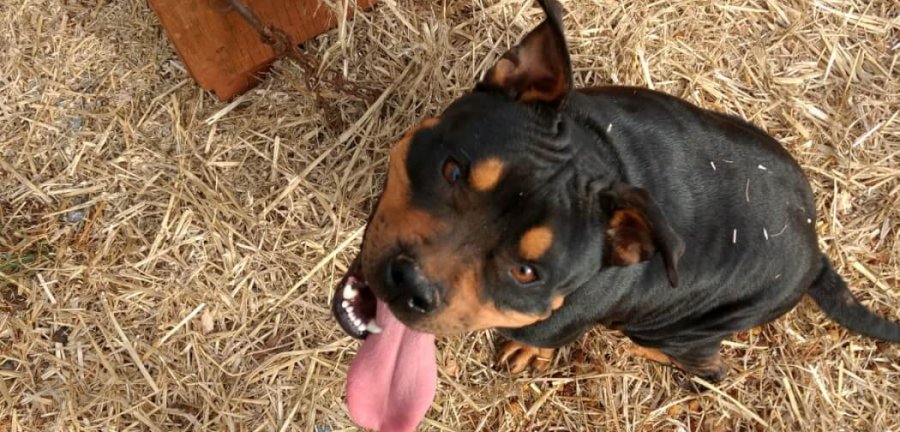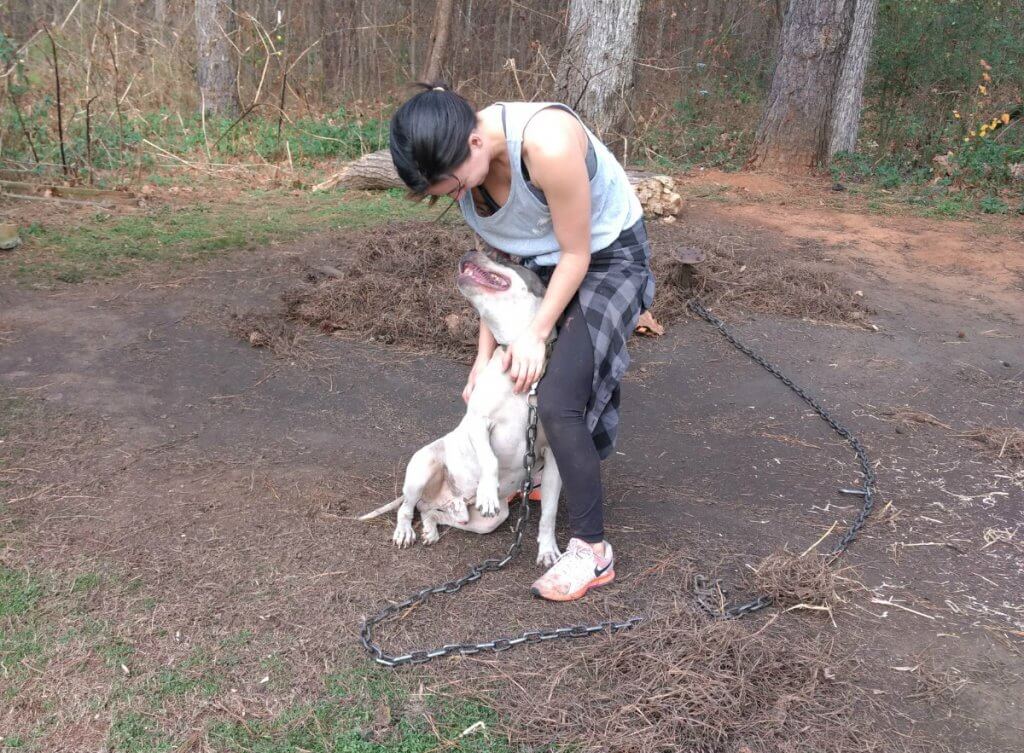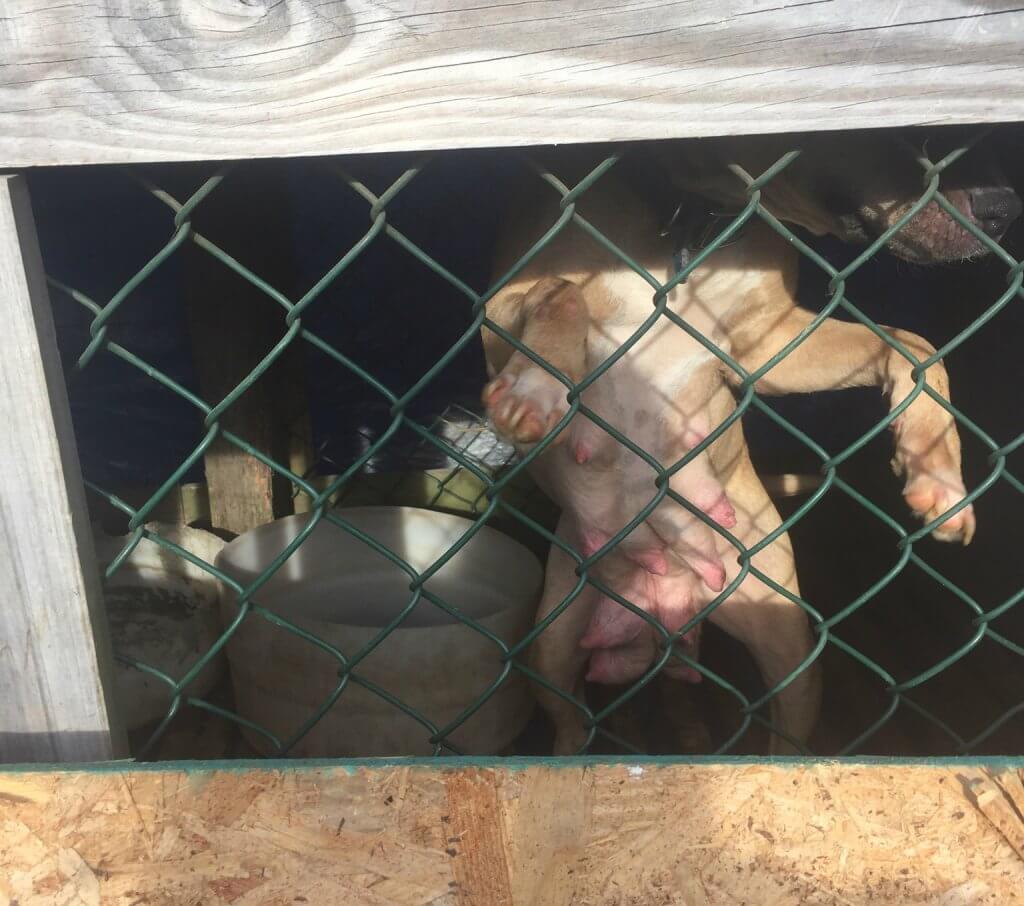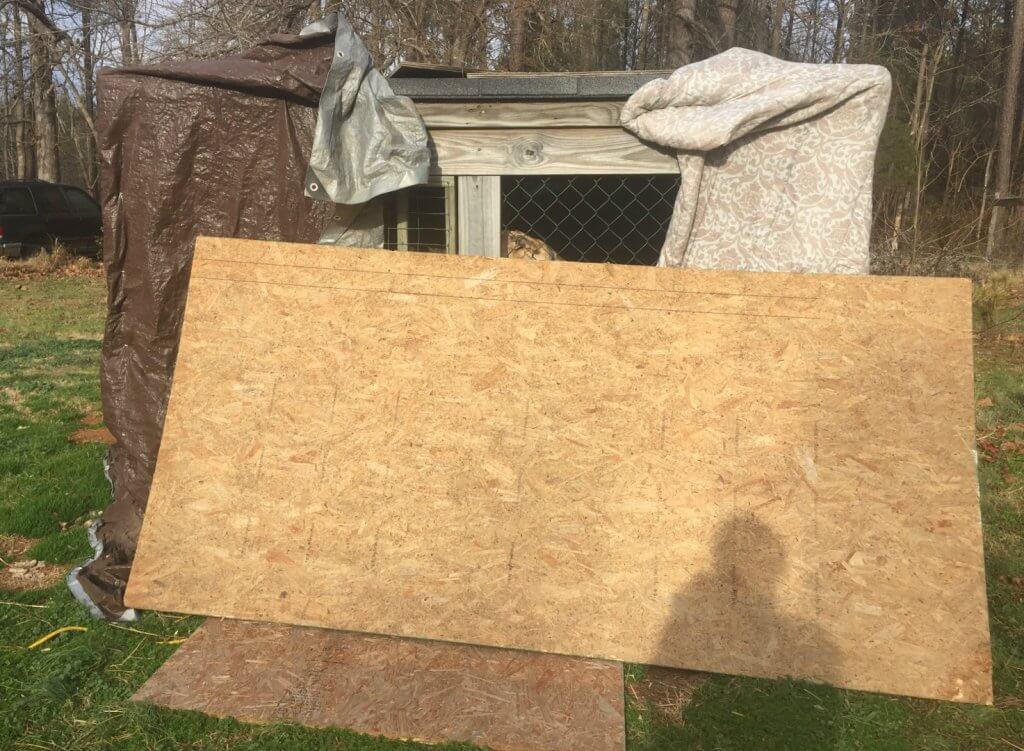It was a cold morning in Roanoke Rapids, North Carolina. As a California native, I had never seen anything like the rural parts of this Southern state. PETA had trained me and told me what to expect when I accompanied its fieldworkers on their tasks, but it didn’t make the things I saw that day any easier to process. In yard after yard, we saw dogs who had been left outside to suffer alone through bitter cold, many without any protection from the elements. Their entire existence extended only as far as the heavy chain around their neck. They were lucky if someone fed them or thought to give them water to drink. No one scratched behind their ears, gave them treats, or cuddled up next to them at night. I thought of the companion dogs I knew—members of the family, important, loved, hugged. It’s what every dog deserves, but it’s a life that many will never know.
Our goal was to deliver straw bedding to as many “backyard dogs” as possible. The straw helps to insulate what little shelter they have and keeps them less cold when the temperature drops. While appraising and cleaning each dog’s living space, we also carefully assessed their physical well-being. And most importantly, we gave each dog love, kindness, and even a bit of playtime—something these animals might never have experienced but for the visits from PETA’s Community Animal Project (CAP).
One home we visited that day had four pit bulls chained in the backyard. The females all appeared to be pregnant—or had recently given birth—but there were no puppies to be found. Our team quickly got to work, shoveling out the waste that they had been living in and filling their shelters with straw. We dumped out the frozen, green sludge that had been marinating in their water buckets and refilled them with drinkable water. Each collar we checked was too tight, cutting off circulation and chaffing the skin. We exposed painful wounds as we loosened the dogs’ collars, but nothing could have stifled their excitement—we were there that day for them, and you could see the appreciation and love in their eyes. I remember kneeling down to hug Cupcake, who was chained in a pen the size of a bathtub, and her head peacefully rested in my arms for a moment. She deserved better than this.
As we were packing up our shovels and empty cans of dog food, their owner told us that there was a hutch on the far side of the property that was home to a dog and five of her puppies. It was covered with tarps and pallets. We first saw the mother, who was slightly emaciated, despite her need to nourish her babies. Her water bowl was dry, and her food bowl was empty and dirty. The bottom of the hutch had wide slats, spaces so far apart that her paws got stuck as she excitedly greeted us. As we filled the hutch with straw and gave her a meal and clean water to drink, my heart broke for her. Most likely, she was being used as a breeding machine, giving birth to litters of puppies who are then taken from her and sold, only to be forced into the same kind of life: used as cheap security alarms or a source of income. Despite their difficult lives, they couldn’t get enough pets, hugs, and care from our team that day. I took comfort in the knowledge that PETA’s fieldworkers would come back to visit them and that we left them in significantly better condition than we had found them.
The greatest cause of animal suffering is not malice—it’s ignorance. We couldn’t bring Cupcake home with us, but we can create a world that protects and respects her. PETA’s Cruelty Investigations Department fiercely leads efforts to outlaw chaining. PETA has worked with local legislators to get chaining banned and ordinances strengthened in more than a dozen jurisdictions in southeastern Virginia and northeastern North Carolina, freeing countless dogs from chains and preventing even more from being chained in the future. Spaying and neutering companion animals guarantees that fewer animals endure a life like Cupcake’s. In 2017, PETA’s Mobile Clinics Division sterilized more than 13,250 cats and dogs, including more than 1,410 pit bulls. The division has “fixed” over 150,350 companion animals since the start of the program. By informing communities about the importance of spaying and neutering and treating their animals like family, PETA’s CAP is building a better future for animals. These fieldworkers truly are their guardian angels.
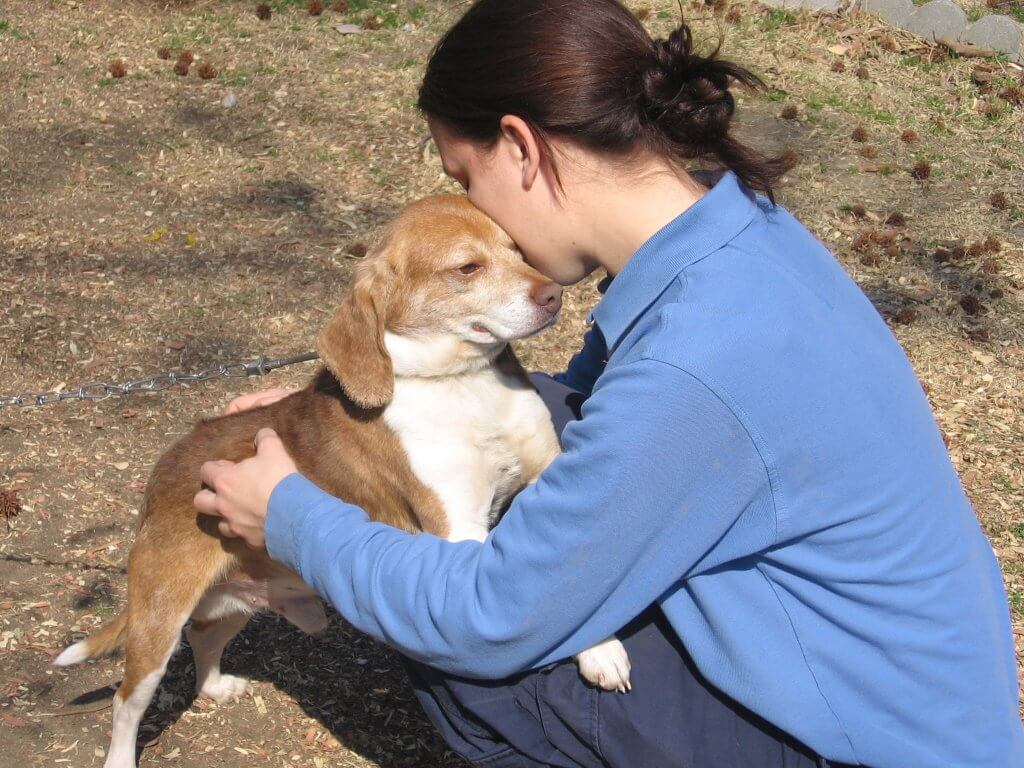
CAP employee with backyard dog
As a staff member at the PETA Foundation, I’m inspired by days like these to continue to work my hardest to ensure that PETA can serve these communities. Every day and night, in any type of weather, CAP fieldworkers answer calls for help from people living in some of the poorest communities in southeastern Virginia and northeastern North Carolina, where animals have no one else to help them. Please, help PETA end animal homelessness and neglect by adopting and never buying them, having your animals spayed or neutered, and supporting laws that require strong animal-care standards and that ban tethering, breeding, and selling animals in pet shops. You can directly support PETA’s lifesaving work here.

